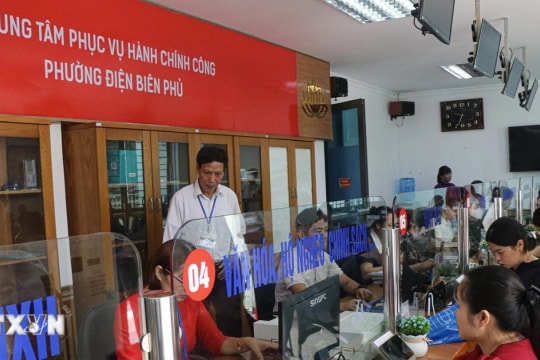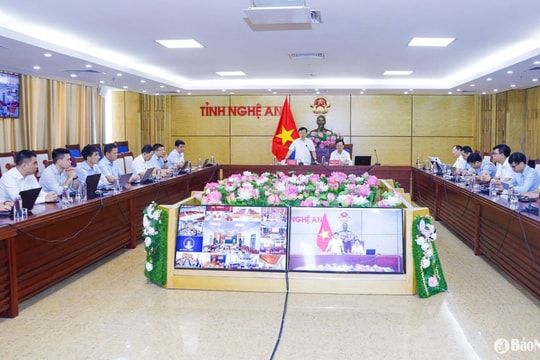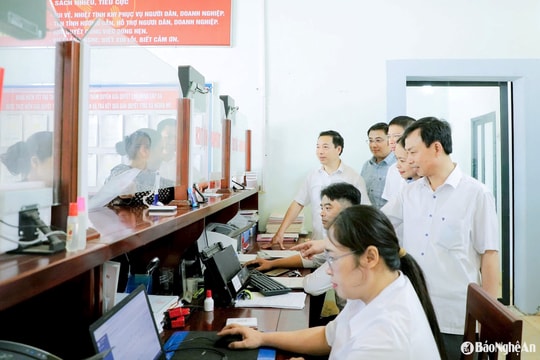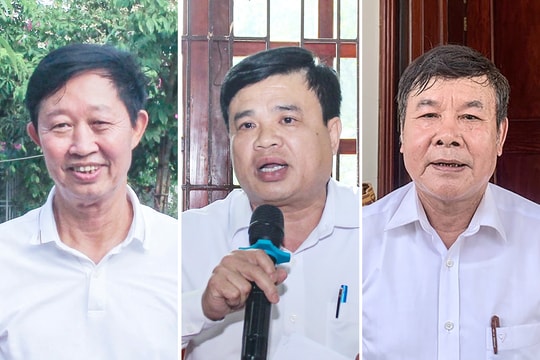Operating a two-level government model, removing 'bottlenecks' for sustainable development
On July 1, 2025, the new commune-level apparatus officially came into operation under the 2-level government model. In this transitional moment, overcoming the concerns and worries about the "unprecedented" model is the spirit of responsibility, determination, drastic innovation, and aspiration to create in localities in the province. Nghe An Newspaper recorded some opinions shared from the grassroots before the new commune-level apparatus came into operation.
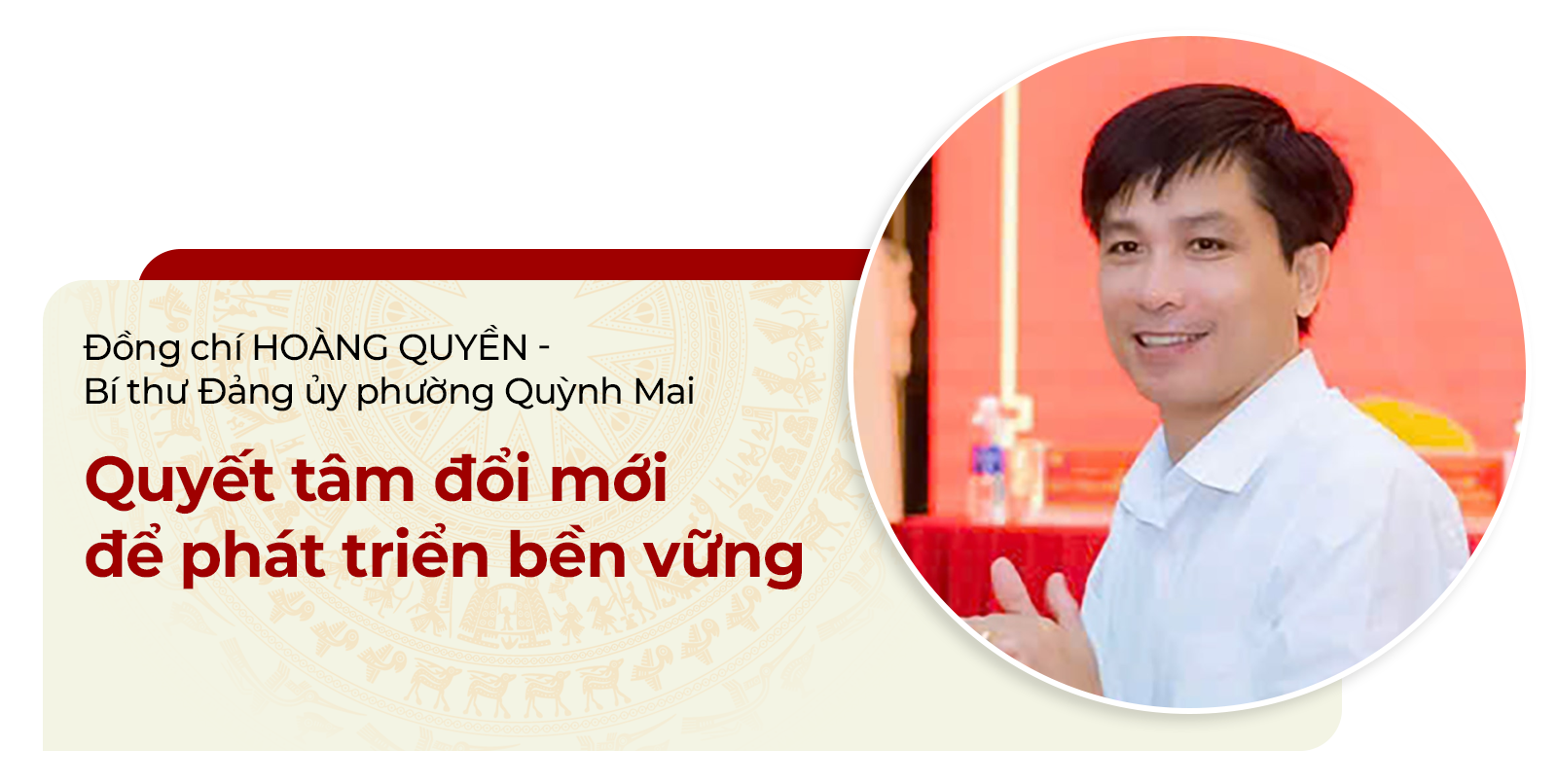
July 1, 2025, marks a major turning point in the organization of the new commune-level administrative apparatus according to the two-level government model nationwide.
With Quynh Mai ward, the new administrative unit was established on the basis of merging 4 old units, including 3 wards Mai Hung, Quynh Xuan, Quynh Phuong and Quynh Lien commune. This is not only a change in boundaries, population, development space (nearly 80km², nearly 58,000 people), but also an urgent requirement for innovation in leadership thinking, methods of direction and modern social management.
The organization of the new apparatus must aim for synchronization, streamlining, effectiveness and efficiency, not simply a combination of geography and personnel. The Party Committee of Quynh Mai Ward clearly defines the guiding ideology as building a high level of solidarity and unity in the entire political system, from thinking to action. The Party Committee must truly be a comprehensive leadership center, proactively issuing practical thematic resolutions, promoting the role of inspection, supervision, and comprehensive development orientation for the locality.
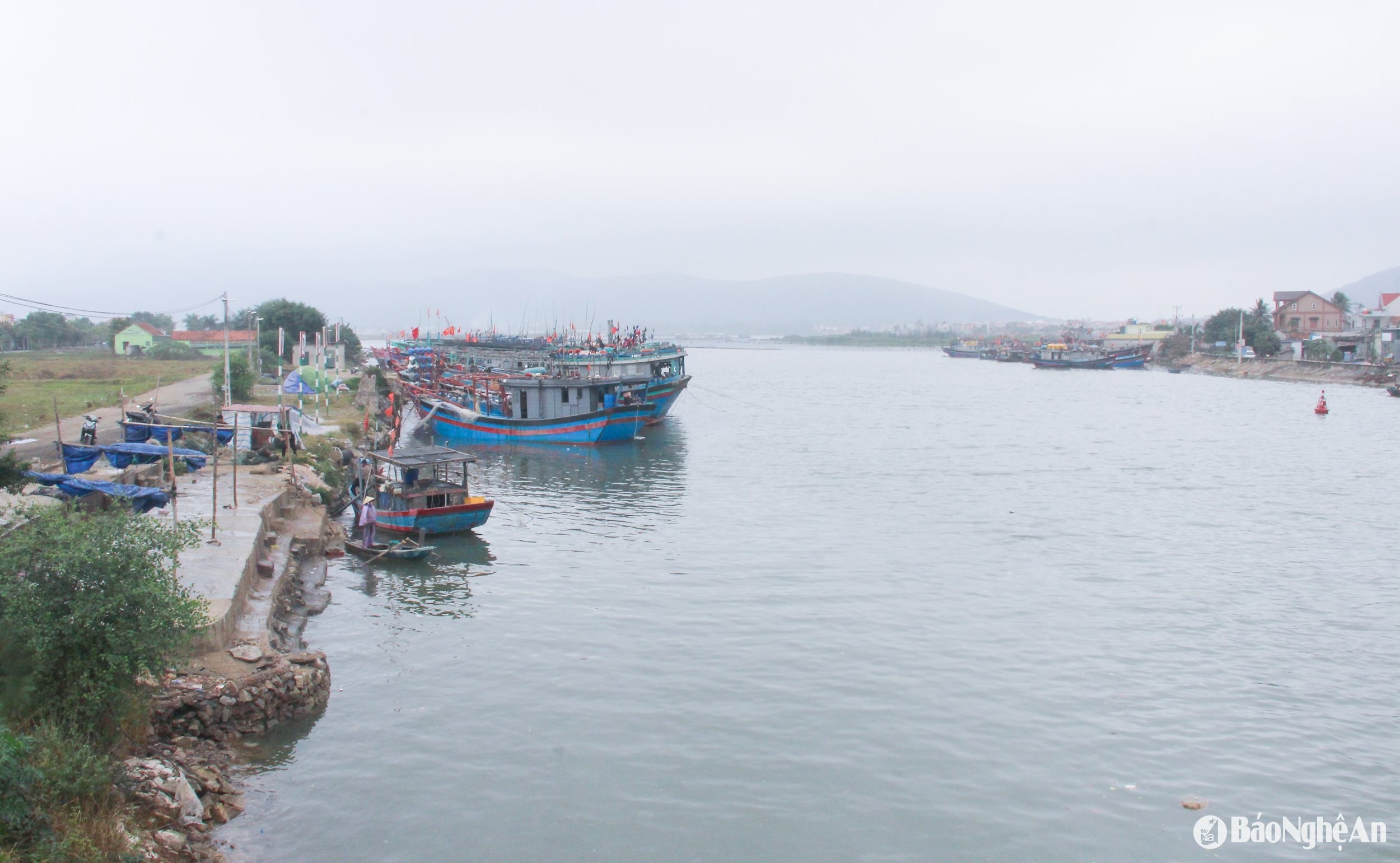
In the new model, ward authorities must strongly shift from “management” to “service”, from pure administration to creating a development environment. Administrative management needs to be public, transparent, and take the satisfaction of people and businesses as a measure. At the same time, effectively promote the role of the Fatherland Front and socio-political organizations, bringing policies to the people in a timely and effective manner.
To realize that goal, Quynh Mai ward focuses on arranging and assigning a team of civil servants with the right capacity and expertise; especially selecting talented people to take on key positions, important and strategic aspects of the locality. In addition to the organization's arrangement, the Party Committee also requires cadres and civil servants to raise their awareness of self-study, self-improvement of solid expertise, good digital skills and especially the ability to organize and implement in conditions of a large area, dense population, and diverse public service needs. It is impossible to manage a large ward well if the apparatus is stagnant, has outdated thinking or lacks the spirit of innovation.
The ward also identified the key task of building a digital administration, digital society, and digital citizens. The goal is that by 2030, each household will have at least one person who knows how to use technology to perform administrative services.
With the sense of responsibility, determination, drastic innovation and creativity of the political system and the consensus of the people, Quynh Mai ward is moving towards a new development path with many breakthroughs and sustainability on the basis of exploiting potentials such as sea tourism, spiritual culture, trade - services, clean and high-quality agriculture - forestry - fishery. Striving to build Quynh Mai ward into a civilized, modern and sustainably developed urban area by 2030.
* * * * *
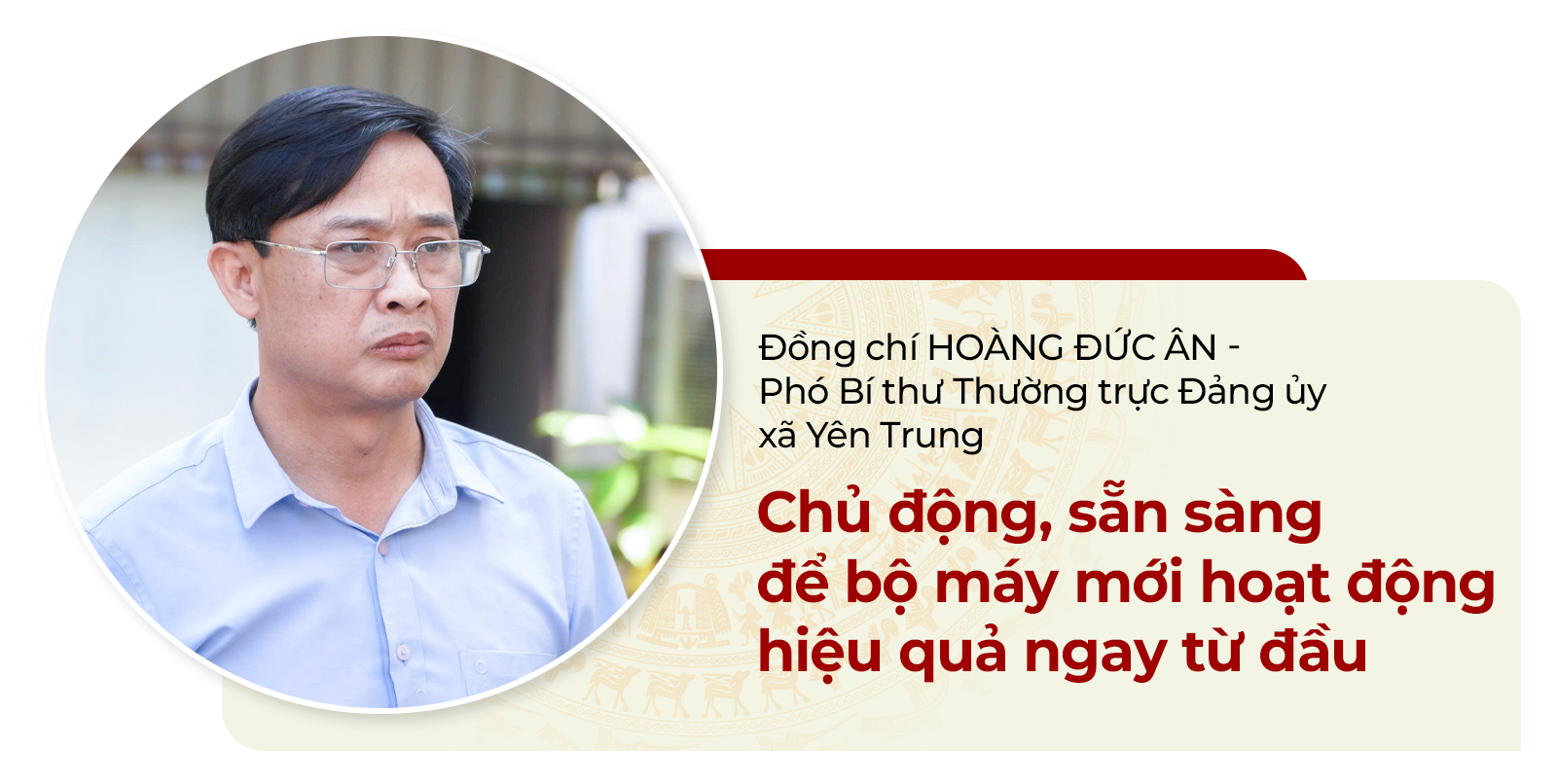
The merger of administrative units and the operation of a two-level government model is a major step, marking a period of comprehensive innovation in the organization of the commune-level government apparatus. As those directly involved in the preparation process for the operation of the new government, we clearly understand both the immediate difficulties and the need to be proactive and ready to overcome them so as not to be passive in the transition.
First of all, the political system at the grassroots level in the initial stage could not operate smoothly because some cadres and civil servants at the commune and hamlet levels could not keep up with the operation of the two-level government. On the other hand, the material facilities serving the operation of the apparatus also did not meet the requirements.
In particular, the workload in the new communes is very large; previously, there was an intermediate level - the district level - to guide and direct, but now all the work is concentrated on the commune level, which must "think for itself, decide for itself, do for itself, and take responsibility for itself". Meanwhile, the qualifications and capacity of the staff and civil servants are not uniform and "even-handed"; those transferred from the district may not have basic experience, and those from the commune level do not have enough capacity to meet the professional tasks assigned by the district and transferred to the commune.
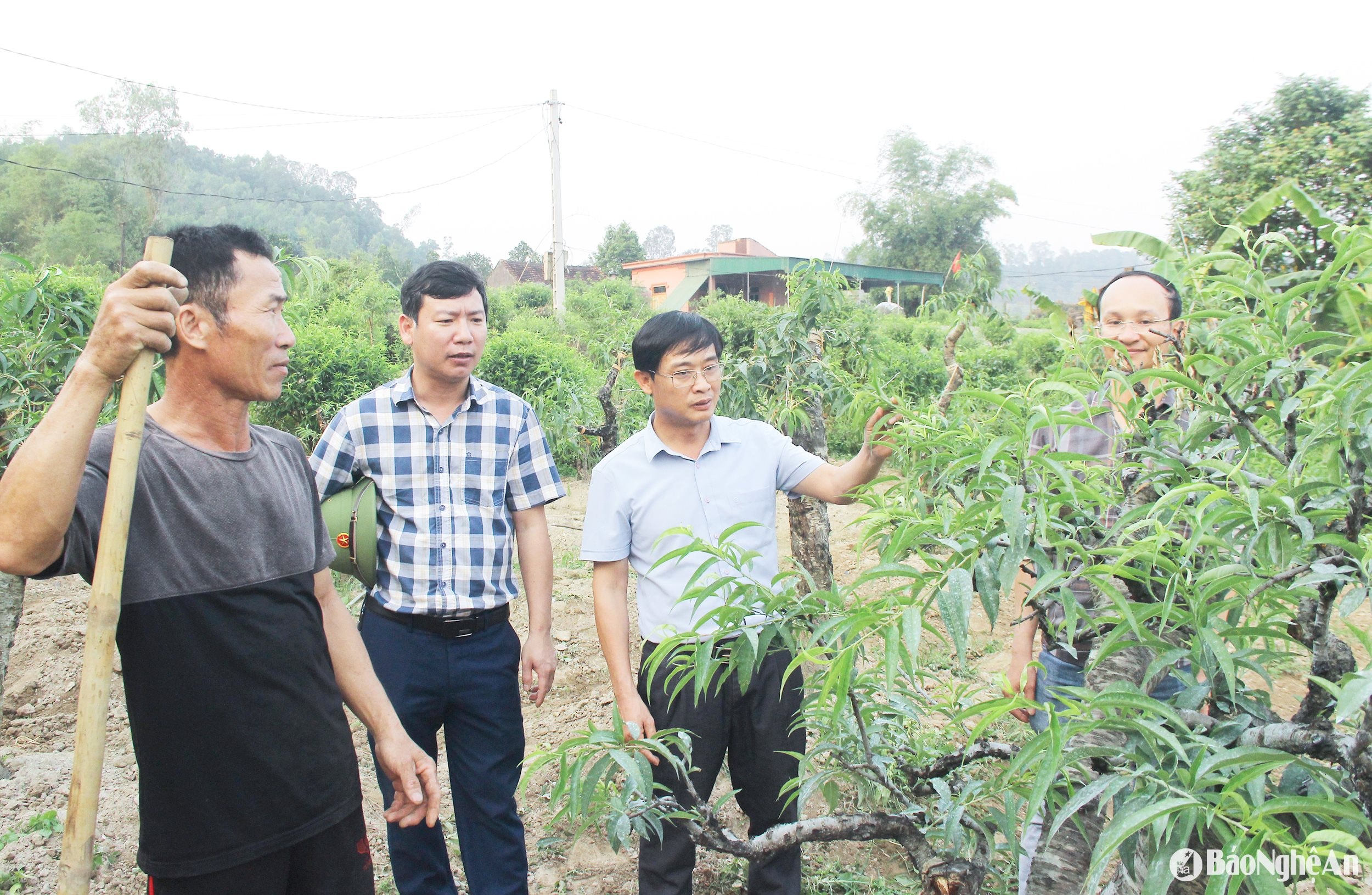
On the basis of proactively forecasting difficulties and challenges, in order to respond well and immediately operate the new apparatus; the Party Committee and the People's Committee of Yen Trung commune have developed scientific and clear working regulations and rules, attaching responsibility to each organization, department, office and individual, avoiding the situation of "those who can do the job are overloaded, those who cannot do the job are idle", affecting the progress and quality of leadership, direction and administration of political tasks, especially serving people and businesses, including the settlement of administrative procedures.
The locality also requires cadres and civil servants to proactively conduct in-depth research on assigned professional fields, ensuring a firm grasp and understanding of the Party's policies, the State's laws and local practices to advise and effectively implement professional tasks, especially in handling people's affairs, including difficult and sensitive areas such as investment, finance, land, resources, environment, etc.
The commune also focuses on training and fostering expertise, information technology skills, digital transformation, mass mobilization skills, etc., along with monitoring, evaluating, and screening to arrange and assign staff appropriately, ensuring the apparatus operates smoothly and serves the people and businesses well.
On the basis of stabilizing the apparatus, Yen Trung commune focuses on reviewing and comprehensively evaluating the potential of 3 old communes: Hung Yen Nam, Hung Yen Bac and Hung Trung (Hung Nguyen district) to connect and chain strengths, build a breakthrough development strategy for the new term 2025 - 2030. The key development direction in Yen Trung commune is determined to prioritize the development of industry, services - trade and high-tech agriculture; focus on improving the quality of life for the people; build a modern government, close to the people, for the people.
* * * * *
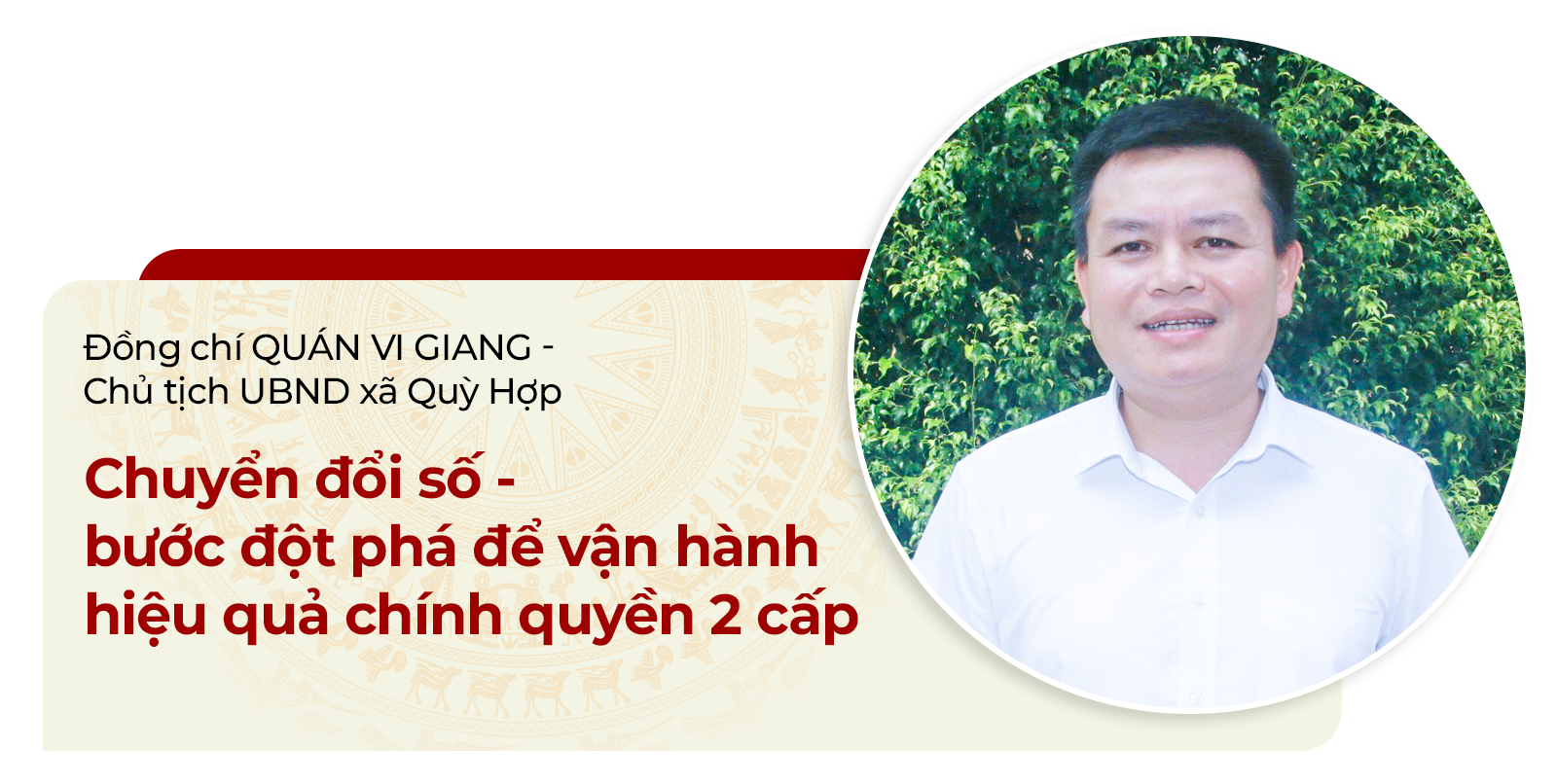
In just one day, the two-level government model will officially come into operation in Quy Hop commune - a new administrative unit formed from the merger of four units: Chau Quang, Chau Dinh, Tho Hop and Quy Hop town. This is a major policy to streamline the apparatus, improve the effectiveness and efficiency of government operations. However, it also poses many challenges when the area is large, the population is diverse, and the infrastructure conditions are uneven.
One of the urgent issues is how to meet the needs of people in handling procedures and public services, especially in remote villages. Quy Hop identified digital transformation as a breakthrough direction, a key solution to better serve people in the new conditions. However, the effectiveness of digital transformation depends largely on people's accessibility, in which ethnic minorities still have many limitations in digital skills.
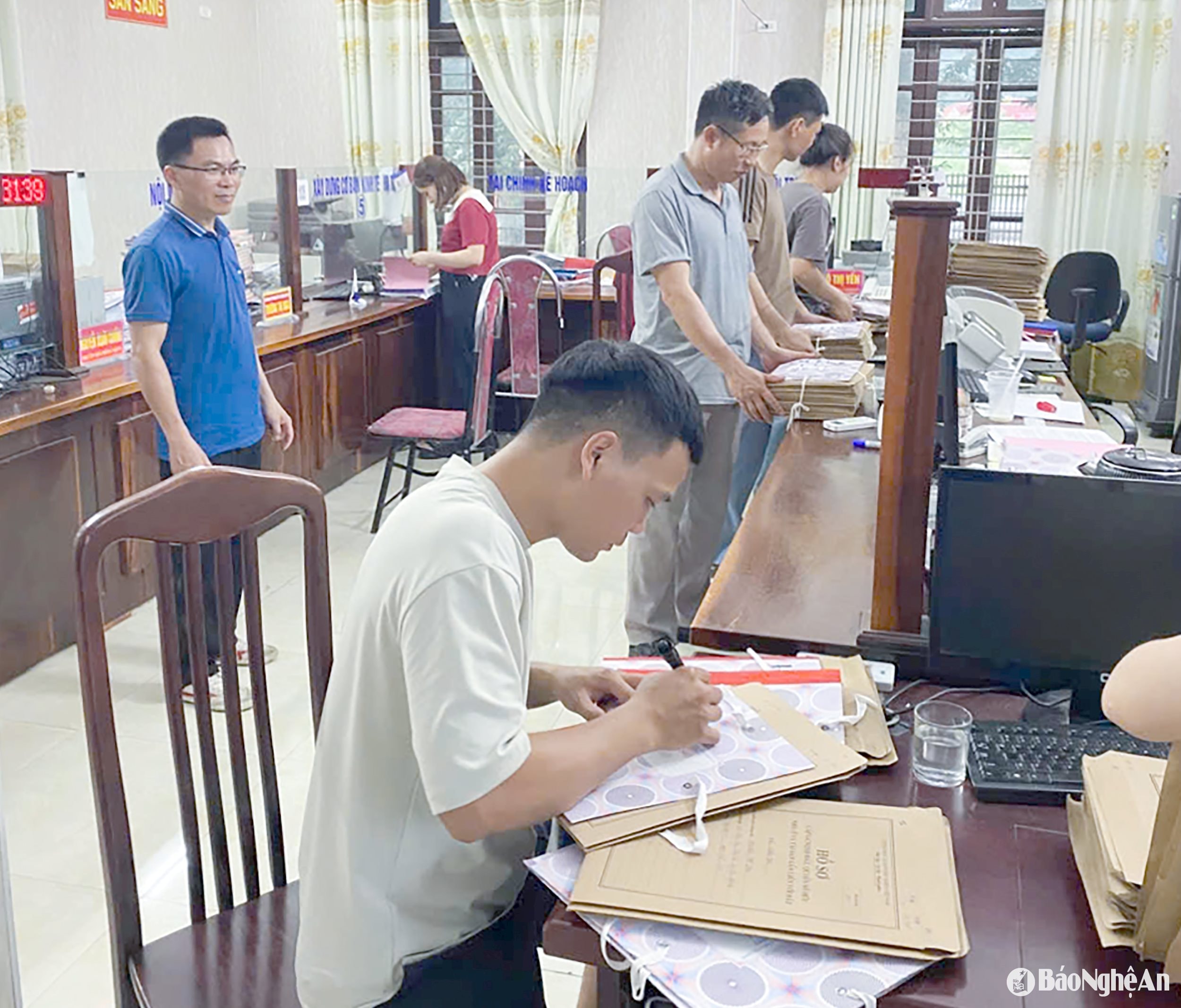
Faced with that reality, the local solution is to promote the role of community technology groups - the core force "going to every alley, knocking on every door, showing each operation" to support people in using online public services. At the same time, organize basic digital skills training classes, prioritizing union members and village cadres to form a network of digital propagandists at the grassroots level.
Along with that, the locality has promoted investment in digital infrastructure, internet coverage, built a Public Administration Service Center, arranged equipment to support people at the "one-stop" department, and integrated many essential services into the digital platform.
A key factor that Quy Hop commune prioritizes is building a team of cadres and civil servants with enough capacity to manage a large area with a large population, while also doing a good job of mass mobilization, propaganda, administrative management and handling practical situations.
The review and arrangement of “the right person for the right job” is carried out seriously, combined with intensive training sessions on management skills, operations, administrative work and digital technology application. The staff evaluation mechanism will be based on work results and people’s satisfaction, creating a fair and transparent working environment, promoting the spirit of dedication.
With careful preparation and a spirit of innovation, Quy Hop commune hopes to create a breakthrough in the operation of the two-level government, promote comprehensive digital transformation, develop sustainable socio-economy, preserve national cultural identity and ensure national defense and security in the area.
* * * * *
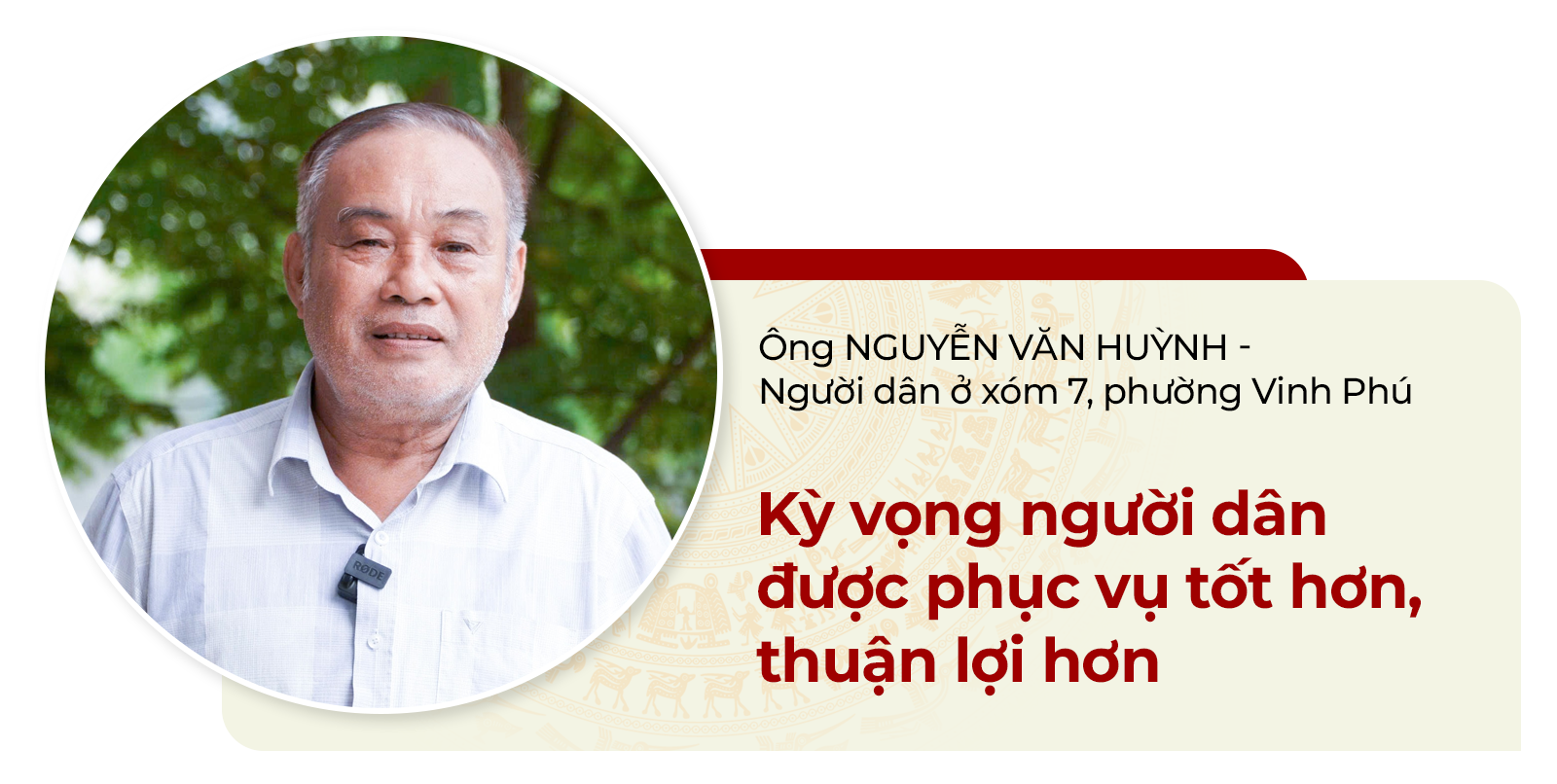
Through following information from local newspapers and propaganda, I learned that Nghi An commune (Vinh city) will be merged with Ha Huy Tap, Nghi Phu and Nghi Duc wards to form Vinh Phu ward - a new administrative unit. At the same time, a 2-level government model will be put into operation, eliminating the intermediate level of the city.
I completely agree with this policy. This is a necessary step to streamline the apparatus, reduce administrative expenses, and allocate more resources for development investment, directly serving the people. The exemption of tuition fees for students from kindergarten to high school, or the research on policies to support medical examination and treatment, makes people very excited. That shows that streamlining the apparatus can bring practical benefits to the people if it is organized and operated methodically and effectively.
As a citizen, the most hopeful thing is that when the district level is abolished, people will be served right at the commune level, without having to travel far to do administrative procedures as before. Now, if they want to make land titles, business papers or handle matters related to land, household registration, etc., if they can be resolved right at the local level, it will be convenient, saving a lot of time and money. On the other hand, policies from the Central and provincial levels will not have to go through intermediaries, so they will reach the people faster, more accurately and more consistently.
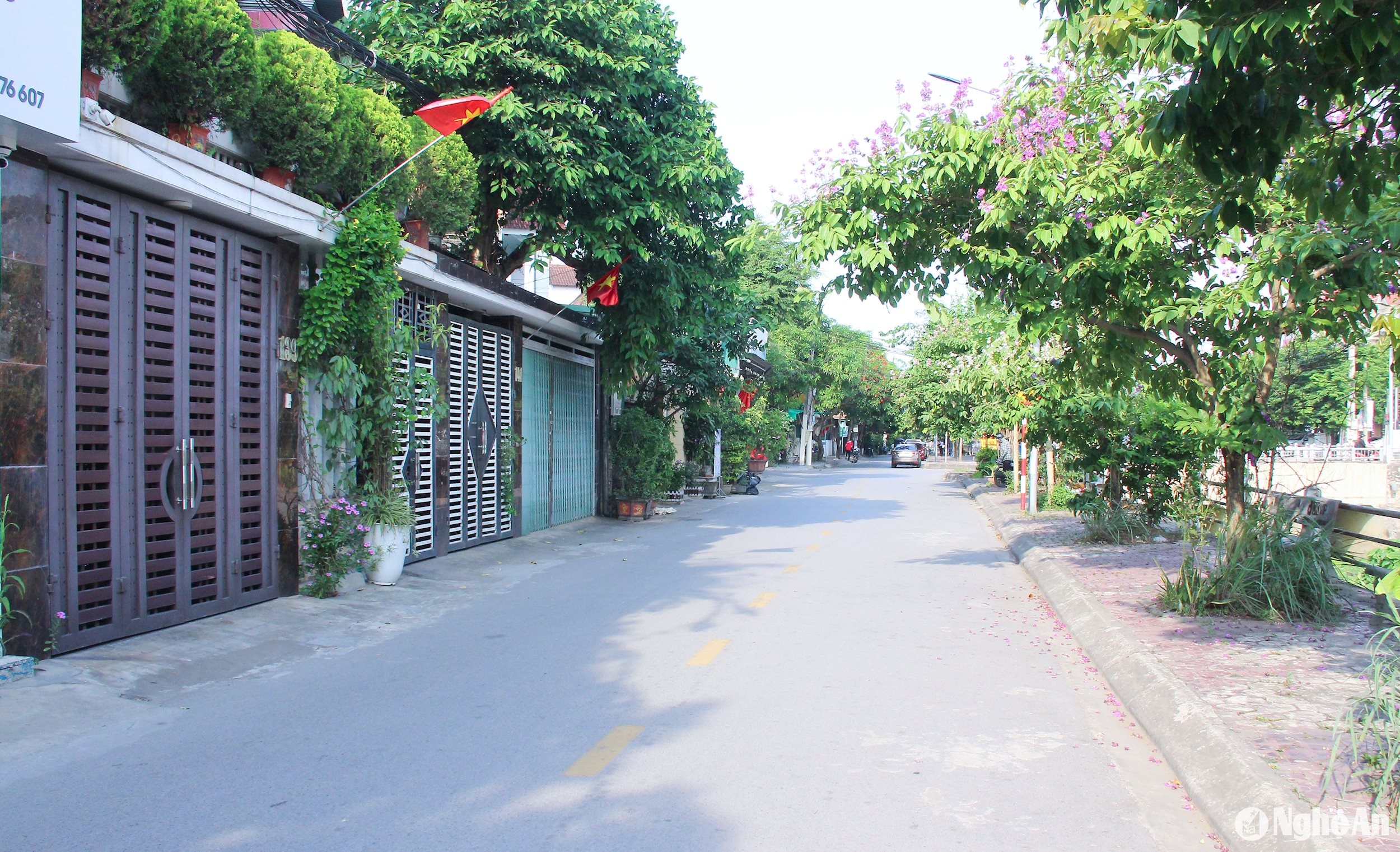
The establishment of a new administrative unit with a large area, large population, and large workload will also be a big challenge for the commune government. Therefore, I expect the selected cadres and civil servants to be truly responsible, honest, close to the people, understand the people and do the right thing, fulfill their responsibilities to the people. If the cadres are not impartial and slow, the people will have many times more difficulties, especially in difficult tasks such as granting land use right certificates - an area that still has many problems.

